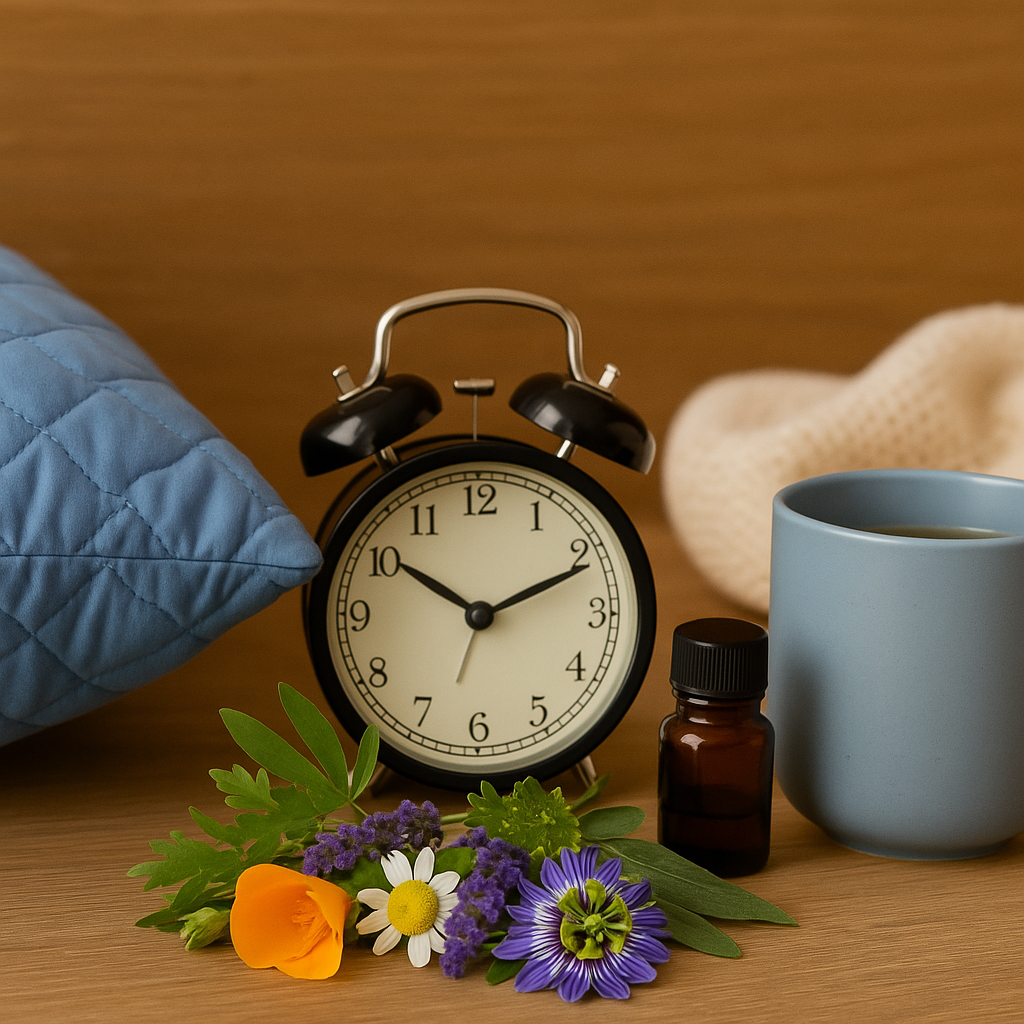
How to Sleep Better Naturally
We all know the difference a good night’s sleep makes. You wake up refreshed, your mood is brighter, and everything feels easier. On the other hand, tossing and turning all night leaves you foggy, irritable, and reaching for another coffee before lunch. Quality sleep is essential for our physical and mental wellbeing. During deep sleep, our bodies repair, our brains reset, and our hormones rebalance. But modern life often works against our natural ability to rest deeply.
The good news? With natural tools and a few lifestyle tweaks, you can get your sleep back on track.
Understanding Your Sleep Rhythm
Our bodies follow a natural internal clock, known as the circadian rhythm. This 24-hour cycle helps regulate when we feel alert and when we feel tired. Ideally, we rise with the morning light and begin winding down as the sun sets. But modern life throws that rhythm out of sync. Screen time, shift work, and irregular schedules can all disrupt this delicate balance.
Blue light from devices in the evening tells your brain it’s still daytime, delaying melatonin production and making it harder to fall asleep. Stress, constant stimulation, and late-night eating can also confuse your internal signals, leading to restless nights or early waking.
Common Sleep Disruptors
Several lifestyle habits can chip away at sleep quality. These include:
-
Screen exposure at night, particularly from phones and laptops
-
High stress levels or a racing mind at bedtime
-
Shift work or irregular bedtimes and wake times
-
Certain medications or stimulants, including caffeine and nicotine
Reducing these disruptors – even by a small amount – can significantly improve how quickly you fall asleep and how deeply you stay there.
What Might Be Going On Beneath the Surface?
If you’ve made lifestyle changes but still aren’t sleeping well, there may be underlying factors at play:
-
An overactive nervous system that’s stuck in “go” mode
-
Adrenal fatigue from long-term stress
-
Blood sugar imbalances causing overnight crashes
-
Nutrient deficiencies affecting sleep hormones and neurotransmitters
In our clinic, we see this often. Addressing these foundational imbalances makes all the difference.
Nutrients to Support Deep Sleep
- Magnesium is one of the most effective and gentle nutrients for supporting restful sleep. It helps relax muscles, calm the mind, and support melatonin production. Magnesium glycinate is especially helpful for sleep as it’s calming and well absorbed. Magnesium citrate may help if digestion needs support too, and magnesium L-threonate is another option for those wanting to support cognitive function.
- Glycine is an amino acid that helps lower body temperature and quiet the mind, making it easier to drift into deep sleep.
- L-theanine, found naturally in green tea, promotes relaxation without causing drowsiness and is great for calming a busy mind at night.
Herbs That Help You Sleep
For centuries, herbal medicine has provided gentle but effective sleep support. Some of our favourite herbs for sleep include:
-
Passionflower: ideal for an overactive mind or circular thinking
-
Zizyphus: helps with falling and staying asleep
-
Californian poppy: useful for broken sleep or early waking
-
Saffron: supports mood and reduces anxious tension
-
Kava: excellent for stress-related insomnia or muscle tension
These herbs can be used individually or in tailored blends. They work best alongside supportive lifestyle habits and when matched to your specific sleep picture.
Melatonin: A Tool, Not a Fix-All
Melatonin supplements can be useful in certain situations like jet lag or shift work, or for older adults with lower natural melatonin levels. But it’s not always the best first step. Melatonin tells your body when to sleep, but it doesn’t do the work of calming your nervous system or resolving deeper imbalances. That’s why we often focus on nutrients and herbs first.
Lifestyle Tips to Reclaim Rest
Some simple but powerful daily habits can make a big difference:
-
Get morning sunlight to set your internal clock
-
Create a consistent bedtime and wake time
-
Have a relaxing wind-down routine (no screens!)
-
Keep your bedroom dark, cool and quiet
And most importantly, listen to your body. Sleep is not a luxury. It’s a powerful form of medicine your body gives itself every night.
Need support? Book a free 15-minute sleep consult with one of our naturopaths. We’ll help you uncover what’s behind your sleep struggles and guide you toward gentle, effective solutions. You deserve deep, nourishing rest—and we’re here to help you get there.



